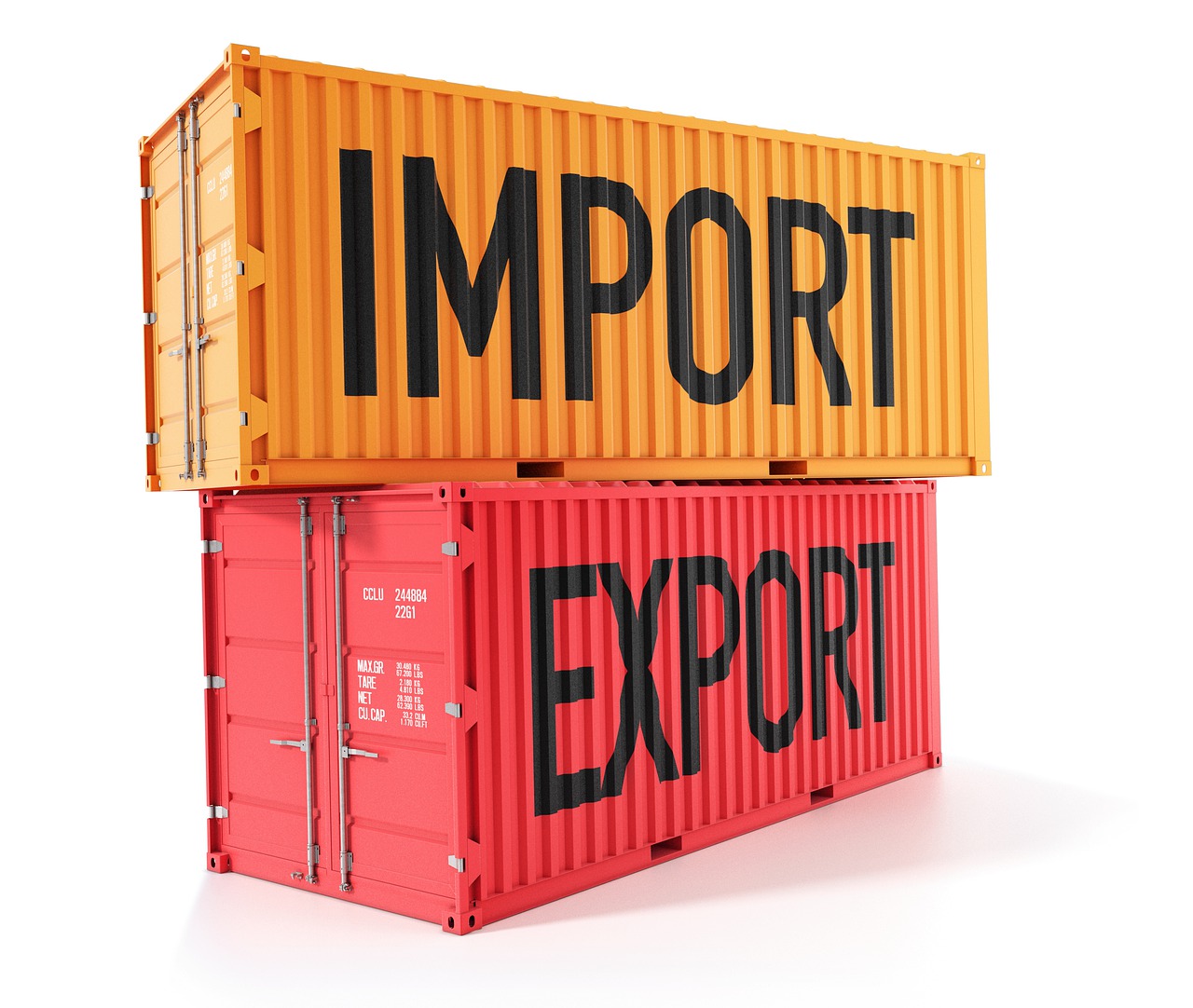Import and Export Business in Ethiopia: Methods of Payment
An importer or exporter, engaged in import or export business in Ethiopia needs to know what type of import export payments in Ethiopia are possible while doing import or export trade in Ethiopia or with Ethiopian businesses. Moreover, it should be known that which type of payment is preferable and under what conditions. This article contains, methods of payment practised in international import export business and especially what is practised or allowed in Ethiopia and it specifically deals with Letter of Credit (LC), Cash against Document (CAD), Telegraphic Transfer (TT) and Advance Payment. It also contains documents to be included in a letter of credit and specifically in an LC opened through Ethiopian banks.
Documents to be included in L/C
Letter of credit (L/C)
- It is a written commitment to pay, by a buyer's or importer's bank to the seller's or exporter's bank. LC guarantees payment.
- A supplier or exporter that has sold to an Ethiopian Importer on LC basis should present to the bank these four sets of documents: Original sets of CLEAN Bill of lading, Shipping Document (Airway Bill, Truck way bill or Railway Manifest), Commercial Invoice that’s verified by the chamber of commerce of the supplier’s country, Packing List and Certificate of Origin that’s verified by the chamber of commerce of the supplier’s country. If the goods are imported from China, a CIQ certificate (pre shipment inspection certificate carried out by China AQSIQ) should be presented along with the other four documents. If the goods have complulsory Ethiopian Standard, a third party pre-shipment inspection certificate attesting the standard/grade of goods is required.
- The two most basic types of L/C are Revocable-credit L/C and Irrevocable-credit L/C, which comes in two versions: Confirmed irrevocable letter of credit and Non-confirmed irrevocable L/C.
Cash Against Documents (CAD)
- A transaction in which the buyer assumes the title for the goods being purchased upon paying the sale price in cash. It’s quicker than LC, but not as safe; Ethiopian exporters are advised to use CAD if they have a very good relationship with the buyer and know that the credentials of the buyer make it trustworthy.
- A supplier or exporter that has sold to an Ethiopian Importer on CAD basis should present to the bank these four sets of documents: Original sets of CLEAN Bill of lading, Shipping Document (Airway Bill, Truck way bill or Railway Manifest), Commercial Invoice that’s verified by the chamber of commerce of the supplier’s country, Packing List and Certificate of Origin that’s verified by the chamber of commerce of the supplier’s country. If the goods are imported from China, a CIQ certificate (pre shipment inspection certificate carried out by China AQSIQ) should be presented along with the other four documents.
Telegraphic Transfer (TT)
- It’s a method of payment in which funds are transferred via telegraph or cable. It’s most common in business conducted in developing countries, where other types of infrastructure, such as computerized payments, may not be available; however, in Ethiopia all imports, of which value is more than USD 2000, are required to be done via LC or CAD. But in there are instances where banks allow up to USD 5000 for TT transfer.
Advance Payment
- An advance payment, or simply an advance, is the part of a contractually due sum that is paid in advance for goods or services, while the balance included in the invoice will only follow the delivery. It is called a prepaid expense in accrual accounting. In Ethiopia an advance payment of up to USD 5000 may be allowable and can be done through Telegraphic Transfer. However, the receiver's bank should provide guarantee for it.
Types of L/C
1. Revocable L/C Vs Irrevocable L/C
Irrevocable L/C
If this type of L/C is once opened, it can not be changed or cancelled or amended without the consent of all parties (including the beneficiary or the seller).
Revocable L/C
A revocable L/C may be amended or cancelled by the Issuing Bank at any moment and without prior notice to the Beneficiary. The cancellation is usually made at the request and on the instructions of the applicant.
2. Confirmed L/C Vs Advised (Unconfirmed L/C)
Confirmed L/C
It is a type of L/C in which the Confirming Bank promises to pay.When an exporter exports to a country with economical or political instability or if the exporter is unfamiliar with the Issuing Bank, the exporter should require that the L/C be confirmed by a first-class bank. If L/C is confirmed, the confirming bank is liable for the payment. The payment is assured even if the importer or the issuing bank defaults. However, under normal circumstances, an unconfirmed LC may be preferred to avoid the charges that would be paid by both the buyer and seller for confirmation.
Advised L/C (Unconfirmed L/C)
Is opened by an issuing bank in which the advising bank does not add its confirmation to the credit. The promise to pay comes from the issuing bank only.
3. Straight L/C Vs Negotiation L/C
Straight L/C
It can only be paid in the country of the Paying Bank.
Negotiation L/C
It can be presented and paid to any bank.
4. Sight L/C Vs Usance L/C
Sight L/C
The Beneficiary is paid as soon as the Paying Bank has determined that all necessary documents are in order.
Usance L/C
Usance time can be between 30 and 180 days after the bill of lading date. This is a form of delayed payment, and should be avoided.
Documents to be Included in L/C
Documents that are to be included in the L/C are always based on negotiation of the parties. It is preferable not to include documents that must be signed or authorized by the buyer's representative or a document that may never be produced (say, a certificate, which should be issued by a foreign agency) and to keep the list of the documents as short as possible.
It is not necessary to mention all documents required by the contract in the L/C. Most likely, it is required to present a commercial invoice, a transport document (Original sets of Bill of lading, Airway Bill, Truck way bill or Railway Manifest), Country of origin invoice and others. What is required in Ethiopia is mentioned above.
The list of additional documents depends up on the agreement made between the seller and the buyer. The list may include:
- Certificate of origin
- Certificate of quality
- Weight certificate
- Pre-shipment inspection certificate
- Packing declaration
- Packing list
- Fumigation certificate, and so on.
It is also necessary to specify how many original documents and how many copies are to be presented. The description of goods stipulated in the L/C must correspond with the description given in the invoice.
Transaction Steps of L/C
The following are a Typical Letter of Credit Transaction steps of a confirmed irrevocable letter of credit.
- After the exporter and buyer agree on the terms of a sale, the buyer arranges for its bank to open a letter of credit that specifies the documents needed for payment. The buyer determines which documents will be required.
- The Buyer's Bank issues, or opens, its irrevocable letter of credit includes all instructions to the seller relating to the shipment.
- The Buyer's Bank sends its irrevocable letter of credit to a Exporter’s Bank and requests confirmation. The Exporter may request that a particular local bank be the Confirming Bank, or the Foreign Bank may select a correspondent bank in the Exporter’s country.
- The Confirming Bank prepares a letter of confirmation to forward to the Exporter along with the irrevocable letter of credit.
- The Exporter reviews carefully all conditions in the letter of credit. The Exporter's freight forwarder is contacted to make sure that the shipping date can be met. If the exporter cannot comply with one or more of the conditions, the customer is alerted at once.
- The Exporter arranges with the Freight Forwarder to deliver the goods to the appropriate port or airport.
- When the goods are loaded, the Freight Forwarder completes the necessary documentation.
- The Exporter (or the Freight Forwarder) presents the documents, evidencing full compliance with the letter of credit terms, to the Confirming Bank.
- The Confirming Bank reviews the documents. If they are in order, the documents are sent to the Buyer's Bank for review and then transmitted to the Buyer.
- The Buyer (or the Buyer's Agent) uses the documents to claim the goods.
- A draft, which accompanies the letter of credit, is paid by the Buyer's Bank at the time specified or, if a time draft, may be discounted to the Confirming Bank at an earlier date.
 Engaging in an export business in Ethiopia is a good business venture; export from the country is growing and the government also encourages the sector. Ethiopia's main export product is coffee; the country is credited to be the birth place of coffee and it has long been its major export product. Not only that, coffee plays a central role in the Ethiopian social fabric.
Engaging in an export business in Ethiopia is a good business venture; export from the country is growing and the government also encourages the sector. Ethiopia's main export product is coffee; the country is credited to be the birth place of coffee and it has long been its major export product. Not only that, coffee plays a central role in the Ethiopian social fabric.



